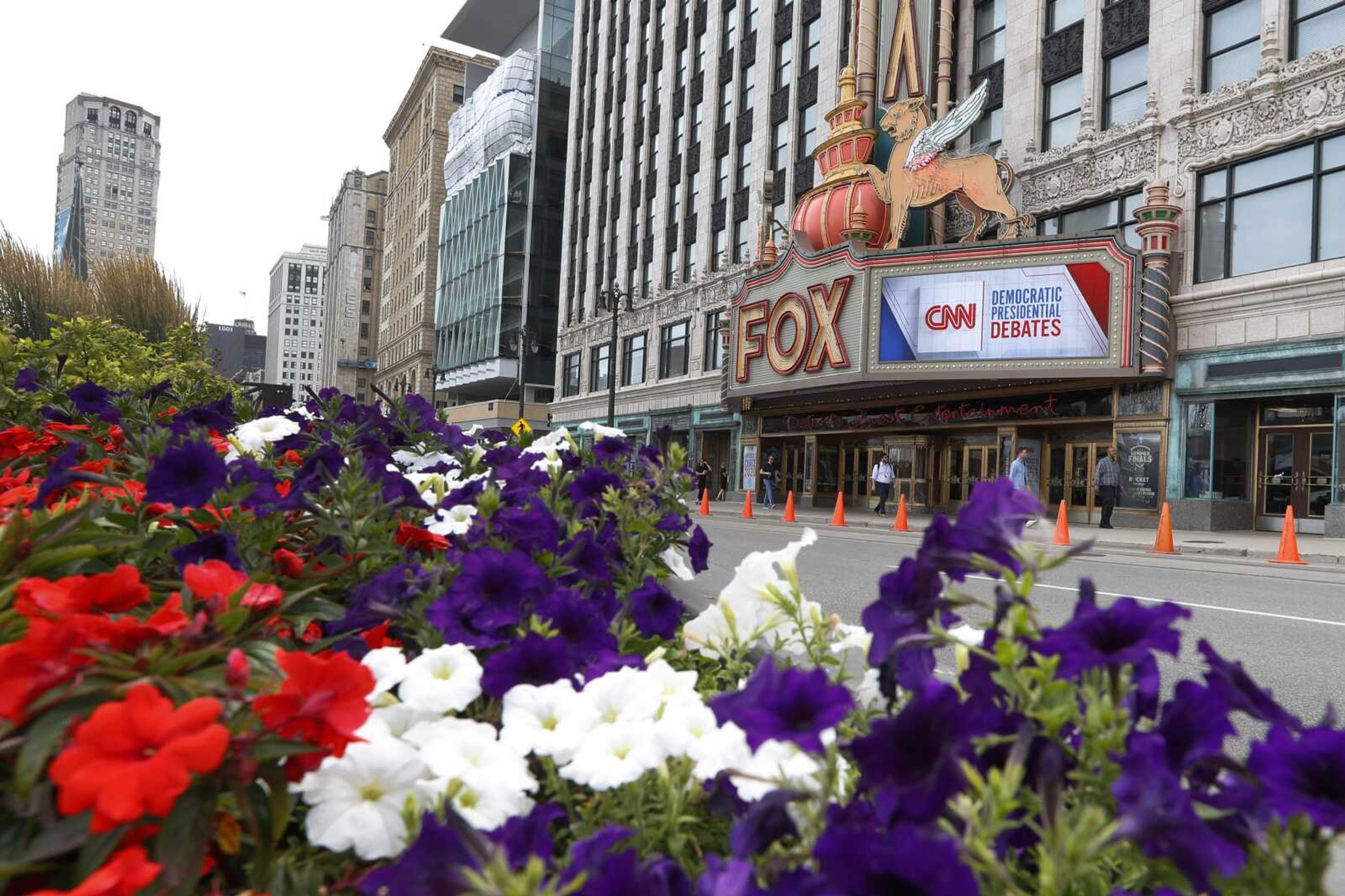Stakes rising for 2020 Dems ahead of next debate round
DETROIT -- Democrats gathering in Detroit for a pivotal presidential debate will have to decide, once again, how to respond to President Donald Trump while presenting their own vision for the country. Candidates are sure to use the high-profile setting today and Wednesday to blast Trump's recent string of racist and incendiary tweets and comments, first about four congresswomen and more recently about Baltimore, a racially diverse U.S. ...
DETROIT -- Democrats gathering in Detroit for a pivotal presidential debate will have to decide, once again, how to respond to President Donald Trump while presenting their own vision for the country.
Candidates are sure to use the high-profile setting today and Wednesday to blast Trump's recent string of racist and incendiary tweets and comments, first about four congresswomen and more recently about Baltimore, a racially diverse U.S. city facing challenges, just as Detroit. But they'll also be under pressure to provide specifics about how they would improve the lives of Americans by lowering the cost of health care or protecting jobs at a time when the economy is showing signs of sputtering.
The second debate of the Democratic primary has higher stakes for a historically large field of more than 20 candidates, 10 of whom will face off each night. For several candidates, the debates will likely offer a last chance to be considered a serious contender for the party's nomination. Tougher rules set by the Democratic National Committee are expected to winnow the race. To qualify for the next debates in September, candidates must raise money from more donors and hit higher polling thresholds -- a bar more than half of the candidates are at risk of missing.
"Everything's at stake," said Jill Alper, a Democratic strategist who has worked on seven presidential campaigns. She had simple and direct advice for the White House hopefuls confronting questions about Trump: "protest and pivot" -- and "pivot quickly" -- to what they can offer American families.
The two leading progressives in the field, Sens. Bernie Sanders of Vermont and Elizabeth Warren of Massachusetts, will be at center stage today. Warren's campaign has gained ground in recent weeks, partially at the expense of Sanders. The debate could offer a high-profile chance for Warren to prove to Sanders' supporters she's worthy of their consideration.
The night will also provide a contrast with more moderate candidates, such as South Bend, Indiana, Mayor Pete Buttigieg, former Texas Rep. Beto O'Rourke and Minnesota Sen. Amy Klobuchar, poised to offer themselves as alternatives to the liberals.
Also on stage will be former Colorado Gov. John Hickenlooper, who has repeatedly said Sanders' brand of democratic socialism is bad for the party and the country, as well as Ohio Rep. Tim Ryan, former Maryland Rep. John Delaney, author Marianne Williamson and Montana Gov. Steve Bullock.
Wednesday will provide a rematch between former Vice President Joe Biden and California Sen. Kamala Harris, who went after Biden during the June debate for not supporting federal busing orders as a means of desegregation when he was in the U.S. Senate in the 1970s, prefacing her comments by saying, "I do not believe you are a racist."
Biden defended his record but appeared caught off guard by the exchange, a shaky response potentially giving voters pause about his ability to go toe-to-toe with Trump on a debate stage or otherwise in a general election, said Michigan-based pollster Bernie Porn.
"Biden needs to do better," he said.
Several candidates have been putting out policy proposals ahead of the debate, likely as a way to get out in front of rivals' criticism.
Harris, who says she supports Sanders' plan for "Medicare for All," released a proposal Monday stopping short of the proposal he and other more liberal candidates are backing. She said she envisions a role for private insurers -- which Sanders' plan does not -- and she would slow the transition to 10 years rather than four.
While Sanders won't be on stage with Harris, other advocates of the plan will be, and could take her to task for not going far enough. Biden's campaign, meanwhile, attacked from another direction, saying she has been inconsistent and her plan would undo the Affordable Care Act approved under President Barack Obama and force a large tax increase on middle-class families.
Warren on Monday rolled out a trade policy proposing nine preconditions for U.S. trading partners to meet to participate in agreements, including an end to fossil-fuel subsidies. She did not rule out tariffs, echoing some of the rhetoric Trump used in 2016 as he wooed working-class voters in places such as Michigan.
Democratic strategist Jamal Simmons said the intramural fight among Democrats is necessary to get a battle-tested nominee who is ready to face Trump on all topics, including race. But he said it's important for Democrats not to let the president off the hook for his racial rhetoric and policies, noting, "The Trump factor is always present." He said Trump's latest comments blasting Democratic Rep. Elijah Cummings and his Baltimore-area district underscore voters' unease with Trump in the White House.
"People argue over whether we are beating up the ultimate nominee, but if we don't, Trump will," Simmons said. "People are testing each other. How you stand up under pressure is part of what the judgment is of who's the best candidate."
Connect with the Southeast Missourian Newsroom:
For corrections to this story or other insights for the editor, click here. To submit a letter to the editor, click here. To learn about the Southeast Missourian’s AI Policy, click here.









